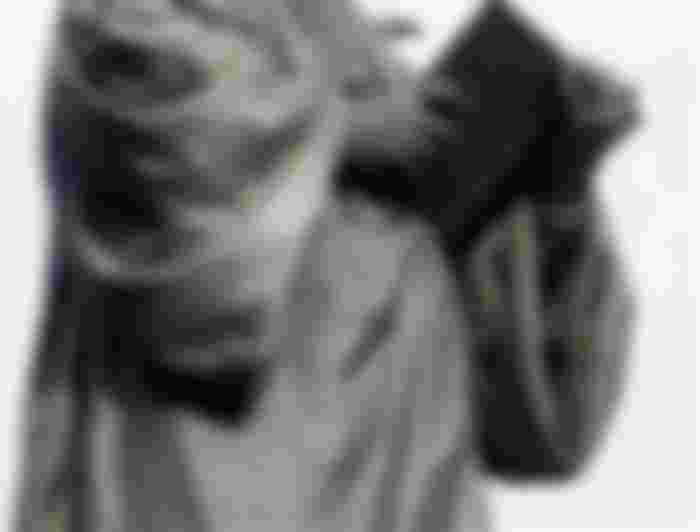When it comes to attitudes towards the pandemic and the resulting lockdowns, there are three kinds of people.
There are those who can't wait for things to "go back to normal", to go back to the way things were before the pandemic, before the lockdowns.
There are those who share this desire with the former, but are cynical/realistic enough to have resolved themselves to the fact, that the pre-pandemic world is gone forever, that even if the lockdowns are lifted, the damage has been already done, with millions of small businesses destroyed forever, millions unemployed and stuck in poverty through no fault of their own. (is that necessarily a bad thing tho?)
Then there's me. People like me don't want the pre-pandemic world to return. We don't want to go back to the office. We don't to go back to being forced to do in person what can be easily done remotely. I like to think of myself as "enlightened", but I'm probably just lazy and spoiled.
Sadly, society only goes one way. If the economy re-opens, they'll likely demand my return to the office, and ignore the cries of those who would rather not. Because society is sadly one-size-fits-all.
A society - we live in it
"We live in a society." - This phrase is essentially a meme. It simultaneously carries a lot of meaning, and also no meaning at all. it effectively means whatever you want it to mean.
To most young people- or should I say, to millenials and zoomers -, the aforementioned quote/meme conjures up thoughts about all the negative traits of the society we are living in, about the hypocrisy and double standards that our society holds, about the blatant injustices that everyone just pretends not to see, about the sheer absurdity of mass culture and the norms.

But that wasn't always so. The word "society" didn't always carry such negative connotations. So what made the word "society" effectively become a swearword, a slur in the vocabulary of people my age and people younger than me?
Connected, yet disconnected
Human society as we know it is a(n il)logical paradox, because the abundance of something does not necessarily mean the absence of its lack. Abundance of food is mutually exclusive with a shortage of food, right? So, abundance of people to potentially socialize with must be mutually exclusive with a shortage of people to socialize with, right? Not really.

When you ask someone about what might be the best visual representation of solitude and loneliness, people will conjure up images of recluse hermits, heychast monks and individual who are surrounded by literally nothing. But this visual image of loneliness is far from the reality of loneliness. This visual image implies, that loneliness is the absence of people to socialize with, a lack of people.
In reality, the more people you are surrounded with, the lonelier you can get. A tight-knit community of villagers or cœnobite monks will have its members constantly socializing with others members of the community, whereas someone who lives in the city will be constantly feeling lonely, despite immediately being surrounded by a gazillion people as soon as they step outside the house.
Technology has made the world more interconnected than ever, yet people at the same time are feeling lonelier than ever.
To be fair, I can't blame them. If you're a monk or a pre-modern farmer, your brothers are always there for you - meanwhile, if you're a modern-day urban wageslave, everyone you see on the streets is in the hurry, either going to work, or going home from work, or maybe going shopping. They have no time to stop and talk to you about how nice the weather is. Everyone's in a rush to make ends meet, and once ends are met, they're too tired to really socialize - and when they aren't, thanks to the pandemic, most of that socialization is going to take place digitally, meaning no oxytocin for you - not that I'm complaining of course, since I'm ultra-introverted and welcome the fact that doing things in person have been rendered optional, but still...

Another thing that plays a role is the fact that families get separated. Children go to school, which obviously gotta be 50 kilometres away from home. Parents go to wageslavery work, which also gotta be 50 kilometres away from home. Both parents and children go home exhausted.
There is just no time or energy to spend on the more positive aspects of society. Once a near-everyday event (okay, just weekly), festivals have been reduced to rare event that takes place maybe two or three times a year at best, and are hollow shadows of their former selves: they're shallow rituals that serve as a reminder of a much better past, a past where we used to live in a close-knit community, rather than emotionally isolated from each other, despite being in physical proximity. Rather than being beautiful events that bring society together, people nowadays think of these festivals as either quick cash-grabs by merchants, or as lame excuses to put the overzealous geeks of the school on display for every other kids' parents to see. Just like vacations, they're just short breaks from the world of work. When the festives are over, it's back to the regular grind.
Thus, this leaves people - especially younger people like me - being far more aware of and fixated on the negative aspects of society: work, duties, compulsions, taxes, unwanted interactions with people we'd rather not exist, etc. And obviously, all the negative aspects of our norms, of our culture, all the double standards that society as a whole abides by.
Return to...?
Normally, my articles propose solutions to the problems I mention. Me proposing either Universal Basic Income or the replacement of the government with Anarcho-Capitalism as a magical cure-all to all of society's ills are essentially a running gag by this point. But truth be told, I don't see how these problems could be solved, at least, not without creating bigger problems.

Cities are a problem. Humans were just not designed to live cramped in ugly glass cubes surrounded by a concrete jungle, and a bunch of alien strangers whose names you don't even know. This kind of existence makes people lonely and fills them with paranoia, a lack of trust for their neighbours.
But the city-problem just cannot be solved. Cities, despite being soul-crushing and completely antithetical to human nature, are the most effective way to store people. If everyone moved to the countryside, and everyone lived in nice little single-story houses with gardens rather than apartments, we'd run out of space pretty quickly. Land used for farming would have to be used for human habitation. Not ideal.

Work, as we know it, is also a problem, but I already wrote several articles about that, so I don't want to waste any words on that, except that maybe reducing work hours and increasing days of leave would give people more room for socialization outside work. Sure, you can still go to a café or a bar to socialize with some people (who may or may not be complete strangers), but it's at the expense of time spent doing whatever you want to do at home, like watching a movie, as well as time spent with your family.
As I stated in a previous article, I don't put my trust into government-sponsored initiatives. Just like how I wouldn't trust a government-sponsored "save our villages" initiative, I wouldn't trust a government-sponsored "save our society" or "revive our festivals" initiative either.
In the aforementioned article, I talked about the Amish, about how they're not rejecting technology, they're just rejecting anything that will make them dependent on outsiders. But that's just half of the story: the Amish also reject things that will serve to divide their community. If a piece of technology serves to separate a member from his community, they won't permit it for individual ownership.
As usual, there is a lesson to be learned from the Amish: they are a very close-knit community that focuses on the internal rather than the external. They eschew anything that makes them depend on outsiders or divide their community.
As much as I love technology, love computers and disagree with hippies on everything politically, I often think, that it would be better to live in a hippie commune, than within mainstream society. Which is to say, that an earlier stage of development of human society is arguably far more desirable to live in, than the present state, and most likely future states as well.
Maybe the solution really is to return to monke.






